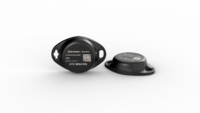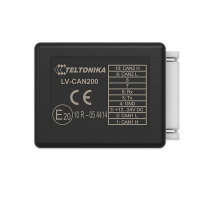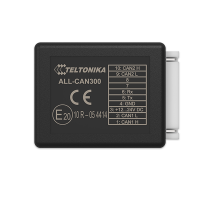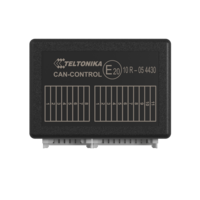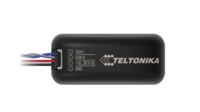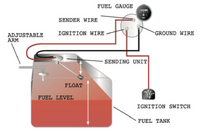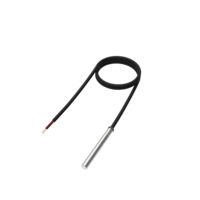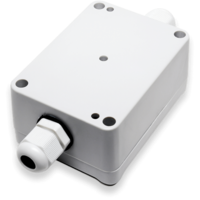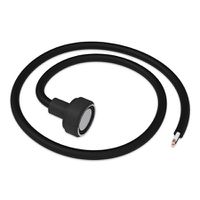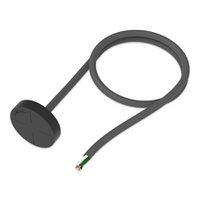Template:Accessories: Difference between revisions
No edit summary |
No edit summary |
||
| (7 intermediate revisions by 3 users not shown) | |||
| Line 1: | Line 1: | ||
{{{ | {{{EYE Beacon|==EYE Beacon== | ||
[[File:EYE device.png|alt=|frameless|200x200px]] | [[File:EYE device.png|alt=|frameless|200x200px]] | ||
BLE Beacon for traceability use cases, delivery tracking, monitoring of various movable objects in logistics (trailers, containers), agriculture (tractor attachments), and constructions (tools and inventory). | BLE Beacon for traceability use cases, delivery tracking, monitoring of various movable objects in logistics (trailers, containers), agriculture (tractor attachments), and constructions (tools and inventory). | ||
*[[BTSID1|BTSID1]] | *[[BTSID1|BTSID1]]}}} | ||
}}} | {{{EYE Sensor|==EYE Sensor== | ||
{{{ | |||
[[File:EYE device.png|alt=|frameless|200x200px]] | [[File:EYE device.png|alt=|frameless|200x200px]] | ||
Sensors data makes it especially suitable for cold chain refrigerator use cases. The built-in accelerometer can detect item movement or fall events. Magnet detection can be used for wireless open/close detection and notifications such as trailer door events, etc. | Sensors data makes it especially suitable for cold chain refrigerator use cases. The built-in accelerometer can detect item movement or fall events. Magnet detection can be used for wireless open/close detection and notifications such as trailer door events, etc. | ||
*[[BTSMP1|BTSMP1]] | *[[BTSMP1|BTSMP1]]}}} | ||
}}} | |||
{{{LV-CAN200|==LV-CAN200== | {{{LV-CAN200|==LV-CAN200== | ||
[[File:LV-CAN200 08.png|alt=|frameless|200x200px]] | [[File:LV-CAN200 08.png|alt=|frameless|200x200px]] | ||
| Line 36: | Line 16: | ||
Access to CAN Bus data enables fleet operators to report on a wide range of information. LV-CAN200 adapter lets you read such essential CAN parameters like: fuel level, odometer, VIN number, fuel consumption, engine RPM, engine temperature and handbrake status. It helps to identify areas of improvement in the vehicle operation to drive down overheads and minimize environmental impact. | Access to CAN Bus data enables fleet operators to report on a wide range of information. LV-CAN200 adapter lets you read such essential CAN parameters like: fuel level, odometer, VIN number, fuel consumption, engine RPM, engine temperature and handbrake status. It helps to identify areas of improvement in the vehicle operation to drive down overheads and minimize environmental impact. | ||
*[[LV-CAN200|LV-CAN200]] | *[[LV-CAN200|LV-CAN200]]}}} | ||
}}} | |||
{{{ALL-CAN300|==ALL-CAN300== | {{{ALL-CAN300|==ALL-CAN300== | ||
[[File:ALL-CAN300 08.png|alt=|frameless|200x200px]] | [[File:ALL-CAN300 08.png|alt=|frameless|200x200px]] | ||
| Line 44: | Line 22: | ||
Communication network can provide you with a wide range of data that can be used to reduce running costs, improve driver safety, streamline maintenance processes and support environmental responsibility. | Communication network can provide you with a wide range of data that can be used to reduce running costs, improve driver safety, streamline maintenance processes and support environmental responsibility. | ||
*[[ALL-CAN300|ALL-CAN300]] | *[[ALL-CAN300|ALL-CAN300]]}}} | ||
}}} | |||
{{{CAN-CONTROL|==CAN-CONTROL== | {{{CAN-CONTROL|==CAN-CONTROL== | ||
[[File:CAN-CONTROL 8.png|alt=|frameless|200x200px]] | [[File:CAN-CONTROL 8.png|alt=|frameless|200x200px]] | ||
| Line 52: | Line 28: | ||
The most widely used feature of CAN-CONTROL device is the possibility to lock/unlock car remotely and control its windows by using special SMS/GPRS commands. It makes CAN-CONTROL accessory a perfect solution for car sharing and many other use cases. | The most widely used feature of CAN-CONTROL device is the possibility to lock/unlock car remotely and control its windows by using special SMS/GPRS commands. It makes CAN-CONTROL accessory a perfect solution for car sharing and many other use cases. | ||
*[[CAN-CONTROL|CAN-CONTROL]] | *[[CAN-CONTROL|CAN-CONTROL]]}}} | ||
}}} | |||
{{{ECAN01|==ECAN01== | {{{ECAN01|==ECAN01== | ||
[[File:ECAN01 TOP.png|alt=|frameless|200x200px]] | [[File:ECAN01 TOP.png|alt=|frameless|200x200px]] | ||
| Line 60: | Line 34: | ||
Contactless connection to the CAN bus of the vehicle! It reads can bus data through the isolation of wires without damaging them and forwards signals to tracking device. | Contactless connection to the CAN bus of the vehicle! It reads can bus data through the isolation of wires without damaging them and forwards signals to tracking device. | ||
*[[ECAN01|ECAN01]] | *[[ECAN01|ECAN01]]}}} | ||
}}} | |||
{{{Analog Fuel Sensor|==Analog Fuel Sensor== | {{{Analog Fuel Sensor|==Analog Fuel Sensor== | ||
[[File:Fuel Gauge.png|alt=|frameless|200x200px]] | [[File:Fuel Gauge.png|alt=|frameless|200x200px]] | ||
| Line 68: | Line 40: | ||
Fuel tracking is one of the key challenges of fleet management. If the vehicle has a factory installed Analog Fuel Sensor, there is a solution that does not require any additional equipment - you can connect the device via AIN to read the fuel data straight from the sensor | Fuel tracking is one of the key challenges of fleet management. If the vehicle has a factory installed Analog Fuel Sensor, there is a solution that does not require any additional equipment - you can connect the device via AIN to read the fuel data straight from the sensor | ||
*[[Analog Fuel Sensor|Analog Fuel Sensor]] | *[[Analog Fuel Sensor|Analog Fuel Sensor]]}}} | ||
}}} | |||
{{{1-Wire Temperature Sensor|==1-Wire Temperature Sensor== | {{{1-Wire Temperature Sensor|==1-Wire Temperature Sensor== | ||
[[File:Types-Of-DS18B20-Temperature-Sensor.png|alt=|frameless|200x200px]] | [[File:Types-Of-DS18B20-Temperature-Sensor.png|alt=|frameless|200x200px]] | ||
| Line 76: | Line 46: | ||
Digital temperature sensor probe is based on Dallas DS18B20 sensor. An 8 meter cable length will not require any additional wires for even the most demanding installation places. These sensors operate in wide temperature range from -55°C to 125°C. | Digital temperature sensor probe is based on Dallas DS18B20 sensor. An 8 meter cable length will not require any additional wires for even the most demanding installation places. These sensors operate in wide temperature range from -55°C to 125°C. | ||
*[[1-Wire Temperature Sensors|1-Wire Temperature Sensors]] | *[[1-Wire Temperature Sensors|1-Wire Temperature Sensors]]}}} | ||
}}} | |||
{{{1-Wire TTJ Temperature Sensor|==1-Wire TTJ Temperature Sensor== | {{{1-Wire TTJ Temperature Sensor|==1-Wire TTJ Temperature Sensor== | ||
| Line 85: | Line 53: | ||
The TTJ communicates over a 1-Wire bus that by definition requires only one data line (and ground) for communication with a central microprocessor. It has an operating temperature range of –55°C to +125°C and is accurate to ±0,5°C over the range of –10°C to +85°C. | The TTJ communicates over a 1-Wire bus that by definition requires only one data line (and ground) for communication with a central microprocessor. It has an operating temperature range of –55°C to +125°C and is accurate to ±0,5°C over the range of –10°C to +85°C. | ||
*[[TTJ Temperature sensor|TTJ Temperature sensor]] | *[[TTJ Temperature sensor|TTJ Temperature sensor]]}}} | ||
}}} | |||
{{{1-Wire iButton Reader|==1-Wire iButton Reader== | {{{1-Wire iButton Reader|==1-Wire iButton Reader== | ||
[[File:IButton reader.jpg|alt=|frameless|200x200px]] | [[File:IButton reader.jpg|alt=|frameless|200x200px]] | ||
| Line 93: | Line 59: | ||
One of the implemented features for fleet management devices is 1-Wire data protocol, which enables connection of iButton. The iButton device is perfect for any application where AVL data needs to travel along with a person or object identification. | One of the implemented features for fleet management devices is 1-Wire data protocol, which enables connection of iButton. The iButton device is perfect for any application where AVL data needs to travel along with a person or object identification. | ||
* [[1-Wire iButton Reader|1-Wire iButton reader]] | * [[1-Wire iButton Reader|1-Wire iButton reader]]}}} | ||
}}} | |||
{{{1-Wire RFID Reader|==1-Wire RFID Reader== | {{{1-Wire RFID Reader|==1-Wire RFID Reader== | ||
[[File:RFID Reader.jpg|alt=|frameless|200x200px]] | [[File:RFID Reader.jpg|alt=|frameless|200x200px]] | ||
The easy solution for implementing driver authentication using RFID. Read is able to receive | The easy solution for implementing driver authentication using RFID based on DS1990A. Read is able to receive identification data wirelessly from passive transponders (cards, tags, etc.) | ||
identification data wirelessly from passive transponders (cards, tags, etc.) | |||
* [[1-Wire RFID Reader|1-Wire RFID reader]] | * [[1-Wire RFID Reader|1-Wire RFID reader]]}}} | ||
}}} | |||
Latest revision as of 11:39, 7 August 2024
EYE Beacon
BLE Beacon for traceability use cases, delivery tracking, monitoring of various movable objects in logistics (trailers, containers), agriculture (tractor attachments), and constructions (tools and inventory).
EYE Sensor
Sensors data makes it especially suitable for cold chain refrigerator use cases. The built-in accelerometer can detect item movement or fall events. Magnet detection can be used for wireless open/close detection and notifications such as trailer door events, etc.
LV-CAN200
Access to CAN Bus data enables fleet operators to report on a wide range of information. LV-CAN200 adapter lets you read such essential CAN parameters like: fuel level, odometer, VIN number, fuel consumption, engine RPM, engine temperature and handbrake status. It helps to identify areas of improvement in the vehicle operation to drive down overheads and minimize environmental impact.
ALL-CAN300
Communication network can provide you with a wide range of data that can be used to reduce running costs, improve driver safety, streamline maintenance processes and support environmental responsibility.
CAN-CONTROL
The most widely used feature of CAN-CONTROL device is the possibility to lock/unlock car remotely and control its windows by using special SMS/GPRS commands. It makes CAN-CONTROL accessory a perfect solution for car sharing and many other use cases.
ECAN01
Contactless connection to the CAN bus of the vehicle! It reads can bus data through the isolation of wires without damaging them and forwards signals to tracking device.
Analog Fuel Sensor
Fuel tracking is one of the key challenges of fleet management. If the vehicle has a factory installed Analog Fuel Sensor, there is a solution that does not require any additional equipment - you can connect the device via AIN to read the fuel data straight from the sensor
1-Wire Temperature Sensor
Digital temperature sensor probe is based on Dallas DS18B20 sensor. An 8 meter cable length will not require any additional wires for even the most demanding installation places. These sensors operate in wide temperature range from -55°C to 125°C.
1-Wire TTJ Temperature Sensor
The TTJ communicates over a 1-Wire bus that by definition requires only one data line (and ground) for communication with a central microprocessor. It has an operating temperature range of –55°C to +125°C and is accurate to ±0,5°C over the range of –10°C to +85°C.
1-Wire iButton Reader
One of the implemented features for fleet management devices is 1-Wire data protocol, which enables connection of iButton. The iButton device is perfect for any application where AVL data needs to travel along with a person or object identification.
1-Wire RFID Reader
The easy solution for implementing driver authentication using RFID based on DS1990A. Read is able to receive identification data wirelessly from passive transponders (cards, tags, etc.)

